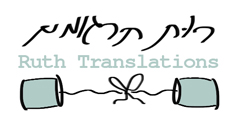Nothing ever gave me as much pleasure as reading did. I remember myself curled up in various corners around the house and garden with a book at every chance I got. I remember the bi-weekly trips to the local library and the sense of wonder from all the possible worlds I could dive into. And while my sister was planning to be a doctor and my brother a policeman or fireman or engineer, all I wanted to do was to read.
Climb up onto the merry-go-round, sail into other people’s lives and experience their joy, disappointment, fear and wonder along with them, as well as the floating feeling overcoming me as I thirstily gulped down other peoples’ lives.
When I grew up a bit, I was filled with awe at the wonderful use one could make of words. How simple ink stains on low quality paper could full me with amazement and give rise to such strong feelings.
The sadness and feeling of emptiness the last page of a book always left me with the urged me to fill the void with yet another book. And when I would sit, daydreaming about wondrous impossibilities such as winning the lottery and flying to mars I would also always daydream about being paid to read.
In time, my dream became a reality, and now people entrust me with reading and translating the products of their imagination. I no longer devour books, rather, read them slowly, internalizing and understanding every word and its connection to the following word and to the paragraph in which it appears. I open dictionaries, surf the internet and discover whole worlds in each and every book.
Now books allow me a new kind of pleasure. The in-depth reading necessary for translation makes the nuances, the atmosphere, the language and the differences between the languages pop out prominently. Hebrew is short, concentrated, rhythmic, minimalistic, while English is broad, rich and generous.
Reading has gained a new aspect – the excitement, the puzzle, the search and the satisfaction in finding an appropriate solution for the challenges each book presents.
The age of technology we live in, and the ease with which one can reach a vast amount of readers all over the world through various ebook platforms, calls for access to high quality and reliable literary translation services which will allow a foreign reader to read and experience the book as if it initially was written in his own language.
The electronic trend gaining momentum over recent years, has caused many authors to follow in the footsteps of musicians to self-publication of their work. This has created a demand for literary translation, accompanied by a fad of machine-translating books with Google Translate, and then editing the result, in an attempt to cut back on the costs.
The problem is that Google Translate is not capable of taking pleasure in in a word, or enjoying a sentence, and is not able to connect between the words, nor is it aware of the nuances in Hebrew or in English or in Swahili and is certainly not aware of the cultural connotations. An editor who receives a text from Google Translate might be able to turn it into a clear and logical text, but would certainly not able to turn it into the text that was input into the machine to being with. The nuances, feelings, intentions and plot line you worked so hard on will disappear into thin air leaving behind them a joint creation of Google Translate and the editor.
If you have written a book you would like to distribute overseas as well – it is important to invest in a high quality literary translation to enable foreign readers to read the book you wrote and not a text distorted by a machine, with little or no connection to the original text.
You worked long and hard on your book and you deserve to have a high quality, professional translation.




